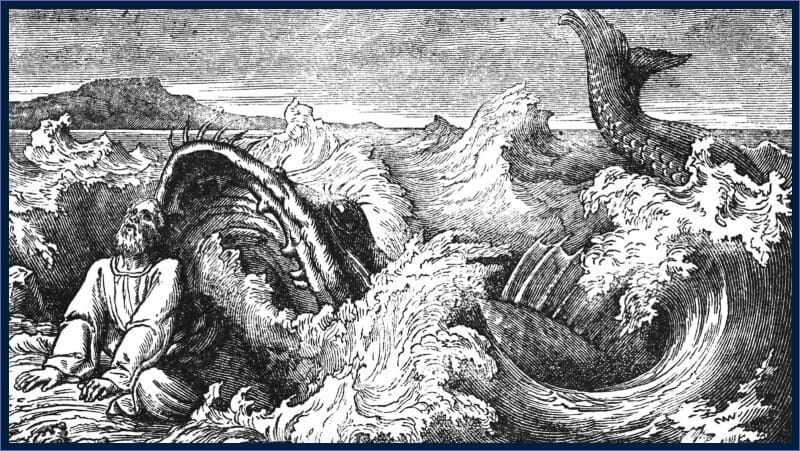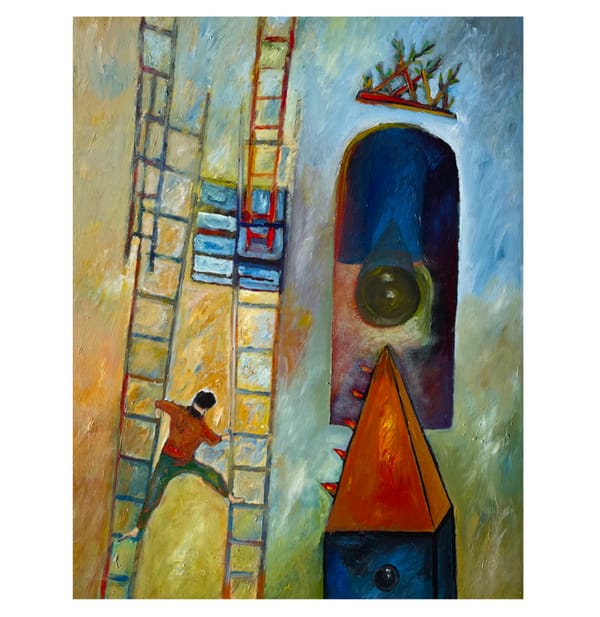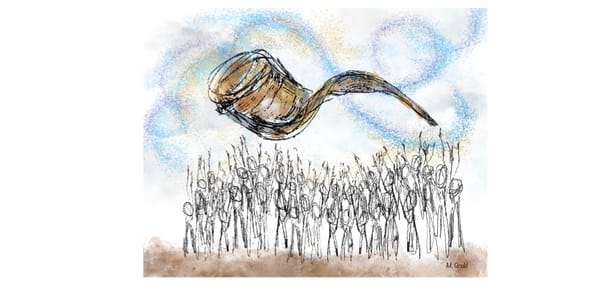The Book of Jonah Revisited ~ Portrait of an Anti-Prophet

By Shlomo Karni
The universal message of human repentance and divine forgiveness, described in the Book of Jonah, is a cornerstone of the Jewish faith and a major component of the liturgy of Yom Kippur, the Day of Atonement. Against this background, we examine the personality of Jonah, his motivation, his thoughts and his actions.
Note: All the quotations cited here (chapter:verse), are from reference [1] at the end of this article.
The story of Jonah is well-known. Briefly: God orders Jonah to "Go at once to Nineveh, that great city, and proclaim judgement upon it; for its wickedness has come before Me"(1:1). Jonah, instead, tries to flee from God's service. He boards a ship at Jaffa, bound for Tarshish.
God creates a mighty storm and the ship is in danger of sinking. Jonah convinces the crew that it is his fault and asks them to toss him overboard. They do, and the storm subsides. God provides a large fish (not a whale) and it swallows Jonah. From its belly, Jonah prays to God who orders the fish to spew Jonah on dry land.
For the second time, God orders Jonah to go to Nineveh and deliver the message. Jonah goes and proclaims, "Forty days more, and Nineveh shall be overthrown!" (3:4). The people of Nineveh repent, God forgives them and rescinds the punishment. Jonah is very displeased and says to God, " I would rather die than live" (4:3).
Jonah stays outside Nineveh to see what will happen. It is very hot, and God creates a large-leaf plant to shade Jonah who is very happy about it. The next morning, God provides a worm which destroys the plant. Jonah is furious and, again, wishes he were dead. God replies, "You cared about the plant which you did not work for and you did not grow... Should not I care about Nineveh, in which there are more than 120,000 persons... and many beasts as well?!" (4:11).
The discussion here will center on the character of a true prophet as an inspired figure who, when called for duty, pursues it with zeal and an unwavering dedication. The Book of Jonah outlines clearly how a true prophet must not behave.
The prophets of the Bible can be classified into several categories:
A. Those who actually prophesied, i.e., predicted the future, seers. For example, Isaiah predicted accurately the Assyrian siege of Jerusalem (772 BCE).
B. Those who performed miracles in the pursuit of their mission. Moses split the Sea of Reeds (not the Red Sea); Elijah brought down fire from heaven in his confrontation with the false prophets of the idol Baal.
C. Those who preached morally and fought against social injustice and corruption, being the "living conscience" of their generation. Isaiah, Jeremiah,Micah, and Amos are such examples.
D. Those who were political leaders, such as Moses and Samuel.
Clearly, Jonah does not fit into any one of these categories. Pointedly, the words "prophet" and "prophecy" are totally absent from his book.
In addition to the power of repentance and God's forgiveness, the book of Jonah stresses the dominance of God over the entire world – animal, vegetable, and mineral. It also illustrates the 'working environment' of God vis-a-vis his messenger: the sailors, the sea, the fish, and the plant.
When Jonah "started to flee to Tarshish from God's service" (1:3), we want to slap Jonah on the back of the head and reproach him with, "What were you thinking? Do you think you are fleeing from the local sheriff?" This, in fact, is exactly what happens when the ship is about to sink, and Jonah tells the crew that he is fleeing from God. Those seasoned sailors are accustomed to all kinds of fugitives - escaped criminals, men in debt, slaves seeking freedom - but never before did they meet a man running away from God. These simple-minded pagans understand immediately what Jonah understood only with the onset of the storm. Their reaction? "What have you done?!" (1:10). You don't flee from God, you don't flee from your mission and from your destiny.
As the storm rages and the sailors are struggling to save the ship, Jonah "had gone down into the hold of the ship, where he lay down and fell asleep" (1:5). This inaction indicates not only another form of escape, but also Jonah's selfishness: He could have helped the sailors in their efforts; he could have prayed to God for them – as he will be doing soon for himself while in the belly of the fish, and as will the people of Nineveh do after hearing his warning..
Jonah's selfishness is further highlighted in his words when God forgives Nineveh, "This is why I fled earlier, for I knew that you are compassionate, gracious, slow to anger, abounding is kindness, renouncing punishment."(4:2-4). These are usually words of praise to God, and we use them verbatim in several prayers. Here, Jonah is accusing God with them! Can't you just imagine a 6-year old petulant child, stomping his feet and shouting, "I knew it! I knew it! I knew it!"
When God forgave him and saved him from the belly of the fish, Jonah thanked God. But now, when God forgives other sinners, Jonah is aggrieved and angry. His selfishness becomes abundantly clear: All along, deep in his heart, Jonah knew that God will forgive the people of Nineveh. This, in turn, will ruin his reputation as a prophet/seer. Jonah put his personal pride ahead of his mission and ahead of the lives of the people of Nineveh.
Still the pouting child, Jonah leaves Nineveh and waits, secretly hoping that his prophecy of destruction might still be fulfilled. God, with His infinite patience, teaches this 6-year old sullen child a moral with the dying plant, "...Should I not care about Nineveh...?" (4:11).
*******************************
References:
[1]. The Book of Jonah, in "A New Translation of The Holy Scriptures", 2nd section. Philadelphia: The Jewish Publication Society (JPS) of America, 1978. pp. 825-828.
[2]. The article "Jonah" in JewishEncyclopedia.com
[3]. Meir Shalev, "In the Beginning". Tel-Aviv: Am Oved Publishers, Ltd., 2008. (In Hebrew).
[4]. Wiesel, Elie, "Five Biblical Portraits: Saul, Jonah, Jeremiah, Elijah, Joshua." Notre Dame, Indiana: The University of Notre Dame Press, 1990.
Return to HOME or Table of Contents
Community Supporter Advertisers of the NM Jewish Journal:
Jewish Community Foundation of New Mexico
Congregation Albert
Temple Beth Shalom
Jewish Community Center of Greater Albuquerque
The Institute for Tolerance Studies
Shabbat with Friends: Recapturing Together the Joy of Shabbat
Jewish Federation of El Paso and Las Cruces
Congregation B'nai Israel



